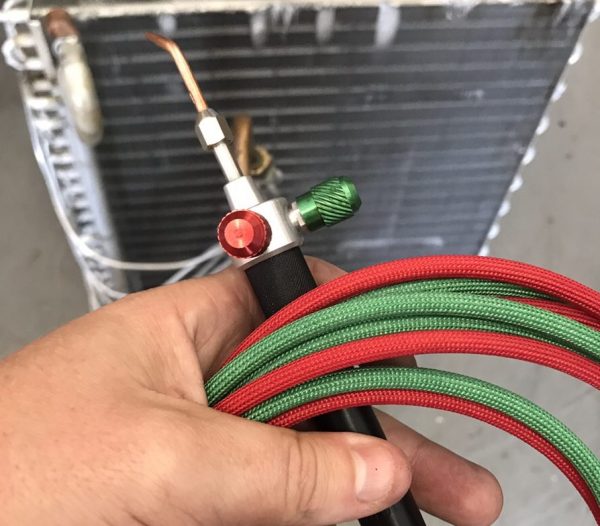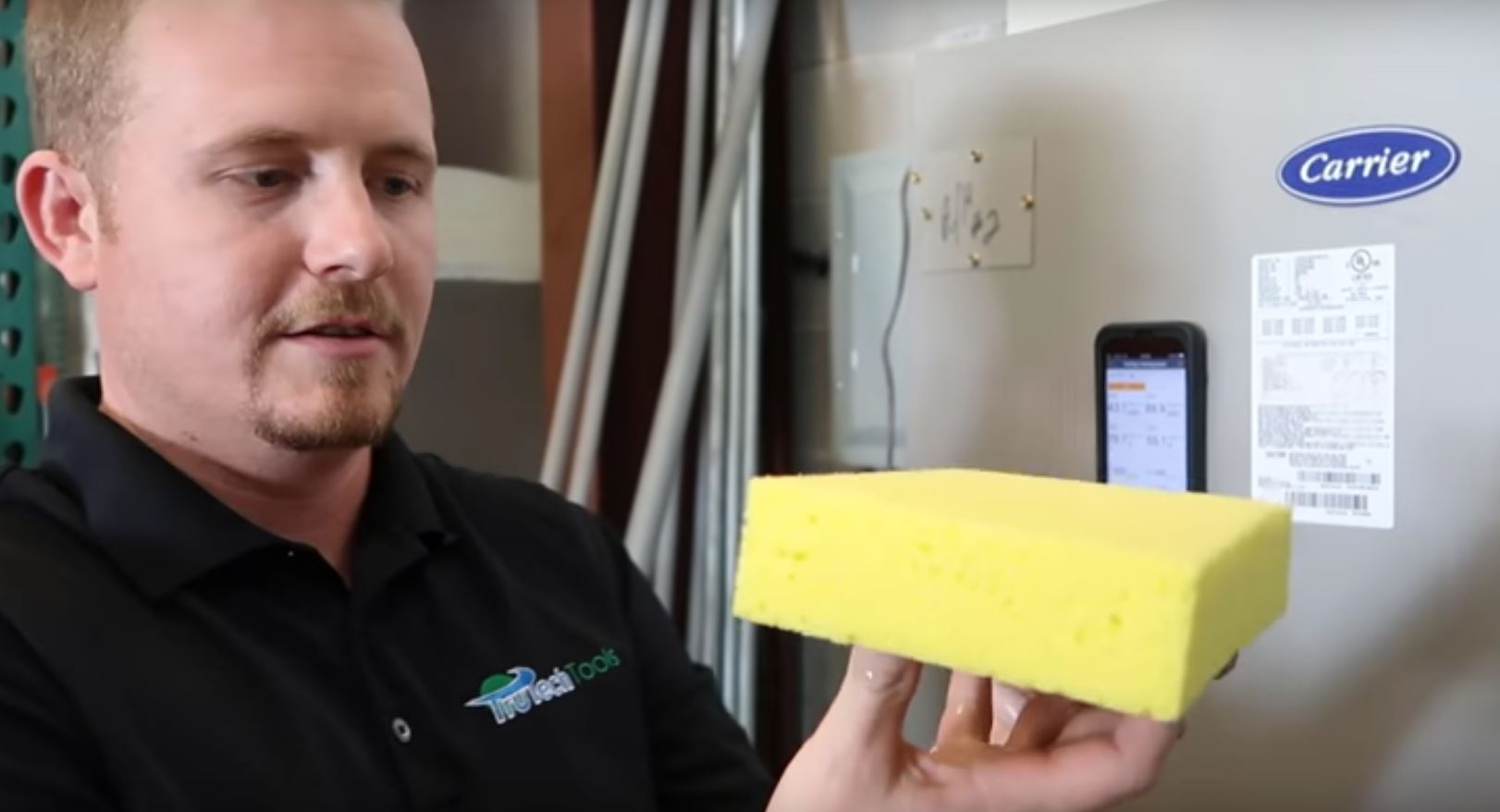Get Tech Tips
Subscribe to free tech tips.
8 Tips for New Techs (So You Don’t Get Fired)

If you are new to the trade, I'd like to welcome you. Like many skilled trades, the HVAC/R trade has many opportunities and can help you make a good living.
If you are young and new to the trade, we need you. We are grateful to have you. However, if you aren't thoughtful, you might get fired.
I don't mean to offend anyone when I say that. Millennials and Gen Zers often just have a different way of looking at work than their Gen X bosses and trainers. That's not a bad thing, but being successful in the trade requires a good work ethic; you may have to adjust some of your habits to fit the ethos of the trade.
Here are my 8 top tips for new techs to help you make your HVAC career a great one:
#8 – Act interested (even when you aren't)

I know sometimes your trainer can be boring, but when he is talking, look alive. Literally, I've seen apprentices and wondered if they were actually dead: smelly, unresponsive… you get it.
A good trainer does a lot more than give you the answers. They invest in you and try to set you up for success. When someone is attempting to invest in you, it's important that you listen up and pay them the respect they deserve.
#7 – Learn the names of basic tools

I know it can be difficult to keep all the tools straight if you are new, but try to remember the basics. Read up enough so that when your trainer asks for “channel locks,” you don't say, “What's that?”
This tip isn't difficult to do, and if you want to get familiarized with some tools, you can look through the HVAC School tool list or check out THIS old live stream.
#6 – Keep the music off and the earbuds out
I understand that music and podcasts help you pass the time. However, our work requires us to focus and be aware of our surroundings. You could miss a weird noise that could help you with your diagnosis. The bottom line is that work isn't the time to be distracted for any reason.
I'll make an exception to this rule if you're listening to the HVAC School podcast… then it's OK.
#5 – Ask questions and listen carefully to the answers

I think it's great to ask questions. That shows that you're putting forth an effort to learn the material.
A general rule for asking questions is that you should listen more than you talk. Ask questions intentionally, and try to absorb everything you can from your trainer's answer. Give eye contact when your manager or trainer is speaking.
If you don't understand something, be specific about the part you aren't grasping. “I don't get it” means very little and doesn't allow your trainer to get to the root of your confusion.
#4 – Repeat back what you heard
Repeating what your instructor said can help clarify confusing information AND commit it to your memory.
Simply say, “I want to make sure I understood you correctly,” and repeat back what you understood. If you just say “OK,” to something that you didn't fully understand, then your instructor can't reinforce that new information and make it easier to understand.
#3 – Look professional

I don't care if your boss or trainer looks like a slob; YOU dress according to the company policy and come to work looking well kept.
Obviously, you need to dress job-appropriate, but people naturally respect someone who has a professional appearance. Make sure you wear a clean shirt and keep your hair neat and tidy. Professionalism is also important to customers, and the way you look WILL influence their first impression of you.
#2 – Show up on time
Show up to work 15 minutes early. Show up 30 minutes early! Whatever you do, do NOT show up late; tardiness comes across as disrespectful, especially if it becomes a pattern.
Punctuality isn't complicated, and bad traffic isn't a valid excuse. If you're accustomed to being “fashionably late” in other aspects of life, try to remember the rule of thumb that “5 minutes early is 10 minutes late.” That way, you give yourself some wiggle room for traffic and other inconveniences.
#1 – STAY OFF YOUR PHONE (unless you're using it for diagnosis)

Your friends, Facebook, and Snapchat can all wait. Give your work your full attention while at work.
If you're just sitting around because you don't have any tasks at the moment, try to tidy up your van or read some books about the trade. I highly recommend Refrigeration and Air Conditioning Technology (RACT manual) for everyone and Dick Wirz's Commercial Refrigeration for Air Conditioning Technicians for those of you who work in refrigeration.
The only time it's acceptable to use your phone is if you're using it for diagnosis (such as using measureQuick, the Danfoss Reftools app, a calculator, etc.) or educational purposes.
Oh, and while you're at it, get good at working on and installing HVAC/R systems. That helps as well.
—Bryan
P.S. – If you're interested in the trade and want a lighthearted look at what you can expect as an apprentice, check out THIS video.










Comments
Damn good advice for the younger generation. I have had newbies say that they see me on the phone and I tell them, I receive calls for work, order parts, and schedule on mine. No games or chatting with friends on the job.
Damn good advice for the younger generation. I have had newbies say that they see me on the phone and I tell them, I receive calls for work, order parts, and schedule on mine. No games or chatting with friends on the job.
That’s a solid post Bryan! Well written.
That’s a solid post Bryan! Well written.
Thanks Todd!
Thanks Todd!
Alot of good advice here. Take initiative as well and try to be one step ahead once your abilities are there. Know what tools and materials will be asked for next.
Alot of good advice here. Take initiative as well and try to be one step ahead once your abilities are there. Know what tools and materials will be asked for next.
#8,#5 and #4. I’ve washed my hands of new guys on the spot! Nothing more frustrating that teaching someone and spending the extra time to explain it and you turn around and they are in their own little world looking off into space.
#8,#5 and #4. I’ve washed my hands of new guys on the spot! Nothing more frustrating that teaching someone and spending the extra time to explain it and you turn around and they are in their own little world looking off into space.
Dang good advice especially the get good at working on systems. Nothing frustrates me more than a “salesman” who has no business touching a unit in the first place. It is morally wrong to shut a homeowner off in the middle of the season and make them suffer to make an extra buck. There are other ways to upsale equipment. But forcing people into something in this manner is wrong. You good technicians are much appreciated and keep up the good work. But these idiots who don’t know what there doing please quit or do like I did and learn it.
Dang good advice especially the get good at working on systems. Nothing frustrates me more than a “salesman” who has no business touching a unit in the first place. It is morally wrong to shut a homeowner off in the middle of the season and make them suffer to make an extra buck. There are other ways to upsale equipment. But forcing people into something in this manner is wrong. You good technicians are much appreciated and keep up the good work. But these idiots who don’t know what there doing please quit or do like I did and learn it.
Great advice! We have a lot of work to do in helping our younger folks (young to the trade)become professionals. I appreciate all you do Bryan.
Great advice! We have a lot of work to do in helping our younger folks (young to the trade)become professionals. I appreciate all you do Bryan.
This is great info, Bryan! Thank you for writing this and every other post that you put out there. Is it okay to use with new techs at our company? This is like a parent telling their child something vs. their children’s teacher telling them the same thing: the child will almost always follow the teacher’s word.
This is great info, Bryan! Thank you for writing this and every other post that you put out there. Is it okay to use with new techs at our company? This is like a parent telling their child something vs. their children’s teacher telling them the same thing: the child will almost always follow the teacher’s word.
Absolutely! Feel free to share / print / etc…
Absolutely! Feel free to share / print / etc…
To leave a comment, you need to log in.
Log In